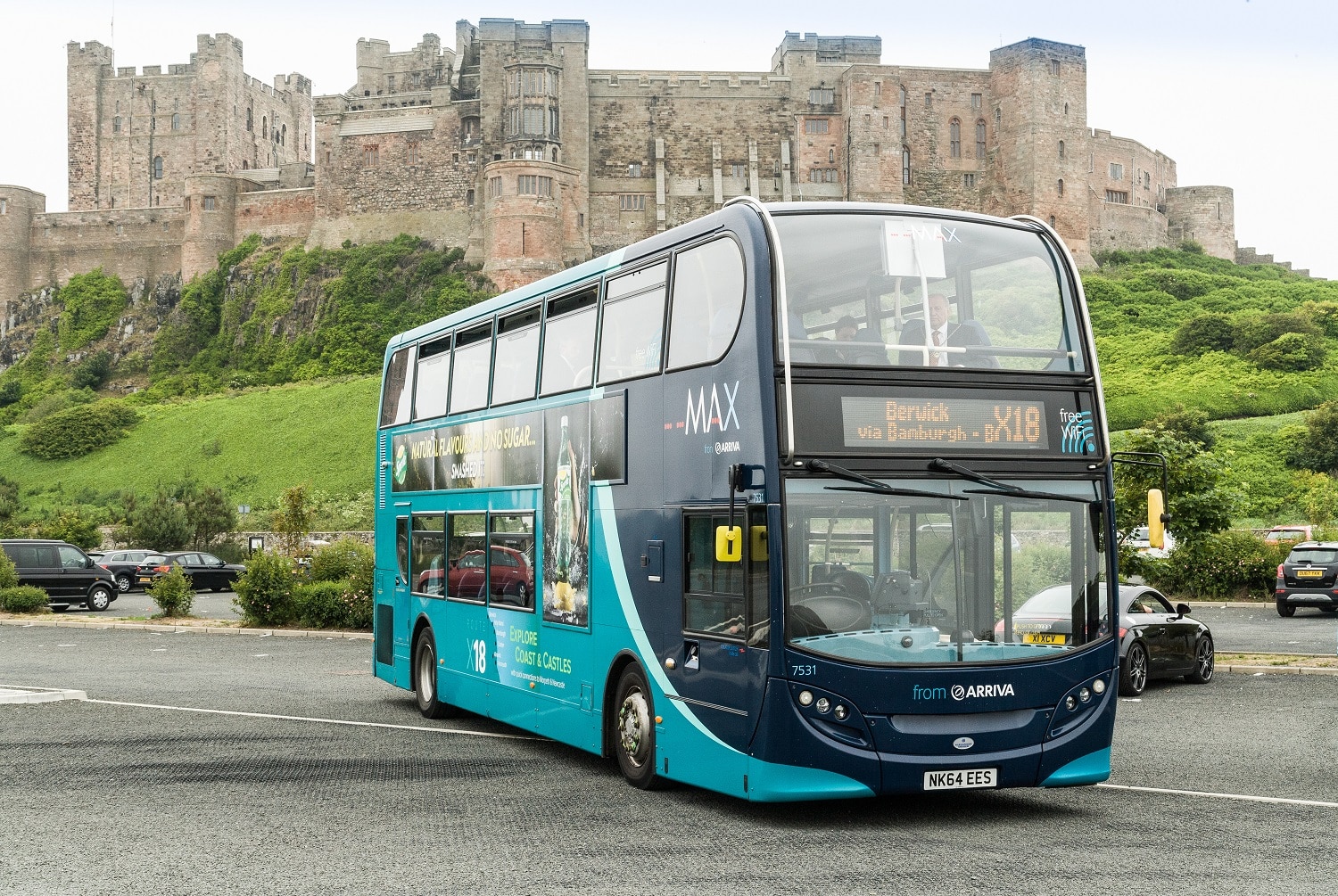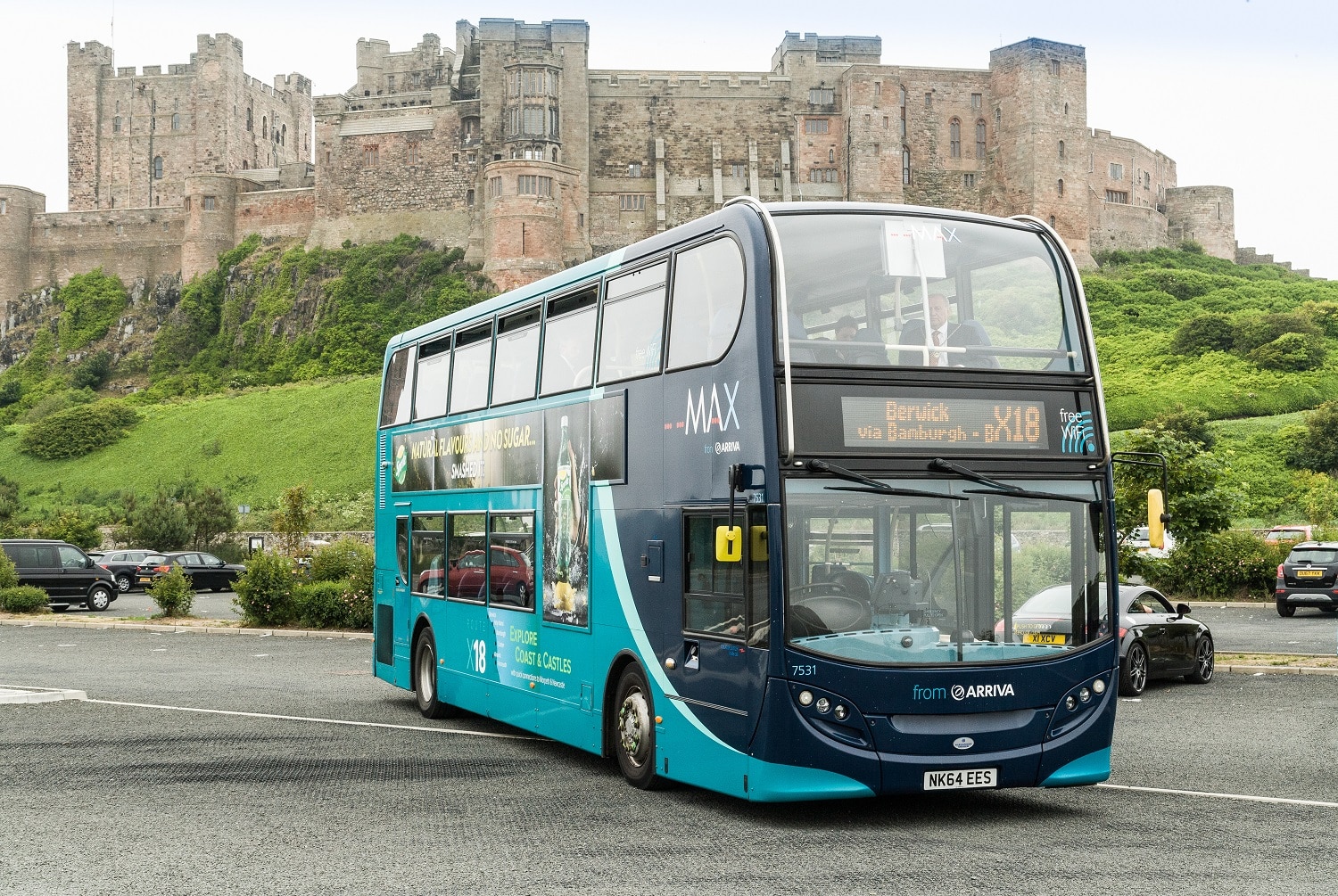The government has committed £167m of new funding to the bus industry in England to support it through the coronavirus COVID-19 pandemic. It will be paid over the next 12 weeks via a new COVID-19 Bus Services Support Grant.
The package has been agreed jointly with the bus industry in England. Mr Shapps says the government believes it is “absolutely vital” that services continue to run during the pandemic.
The Department for Transport will write to bus operators in England next week outlining details of how they can apply for the grant. It will not be allocated on a competitive basis, but there will be a requirement to agree a set level of service provision during the pandemic with local authorities (LAs).
The £167m of new bus funding for England is on top of £200m of BSOG already committed to English operators. BSOG will be paid at ‘business as usual’ levels during the pandemic despite reduced service levels, as confirmed by Secretary of State for Transport Grant Shapps last week.
Additionally, £30m of funding previously allocated to new services will instead go to LAs to maintain existing routes. English LAs have also been directed to maintain concessionary reimbursement and tendered service payments at existing levels.
Operators’ commitment required for funding, says Shapps
As part of the announcement of £167m of bus funding for operators in England, Mr Shapps underlined his earlier comments about operators being required to maintain “key routes” at a service level that meets demand but allows enough space between passengers. That is expected to be 50% of normal frequencies.
Operators have reacted positively to the package. It follows an earlier announcement by the Scottish Government of ongoing financial support and the establishment of a ‘hardship fund’ by the Welsh Government ahead of a longer-term settlement.
“This funding it designed to plug the gap between the costs of running essential routes and revenue currently being received. It will help the country through the outbreak by allowing critical journeys to be made,” says Confederation of Passenger Transport Chief Executive Graham Vidler.
Some operators have reported that passenger numbers have dropped by 90% since the onset of the pandemic. Others have seen drivers on commercial services carry less than 10 passengers in a shift.
Industry welcomes government backing
Operators large and small have welcomed the £167m funding announcement for buses in England.
Craig Temple, Managing Director of Harrogate-based Connexionsbuses, says that financial support for the industry had been one of his primary concerns during the coronavirus COVID-19 pandemic. Connexionsbuses is operating at around 50% of normal service levels.
However, Mr Temple suggests that additional funding may be necessary as and when services are expected to return to normal. “That will be a period when we may need further support until we are back in an ‘as before’ position with customer numbers,” he says.
Mr Temple also believes that the government should mandate either that services should be free, or that operators should be obliged to accept each other’s tickets on common routes for the duration of reduced timetables.
“We have done the latter since the outset, but it has not been reciprocated. With reduced levels of service, that could inconvenience those that need us most.”
Arriva UK Bus Managing Director Paul O’Neil says the announcement has multiple benefits. “This support means that we can continue to deliver a vital service up and down the country. It also means that we will be ready to gear up to a full network as quickly as possible when appropriate.”
FirstGroup says the latest announcement will enable it to “work through the detail” of its services with LAs and other stakeholders to “ensure that bus provision continues at an appropriate level for each town and city that we serve.”
Go-Ahead Group also regards the additional money as positive. It says it will work with DfT to “optimise this funding to benefit key workers and other people using our services to make essential journeys.”
Stagecoach: External support ‘is important’

Stagecoach Chief Executive Martin Griffiths has welcomed all bus funding announcements from national and devolved governments.
Mr Griffiths views both that support and the backing from LAs as “welcome recognition of the importance of maintaining services.”
In a wider update issued by Stagecoach, the group adds that it plans to eventually furlough around 55% of its regional drivers and engineering staff. Vehicle mileage will reduce to around 40% of normal over the next week.
Stagecoach has also suspended its Megabus scheduled coach operations in England and Wales and the Oxford Tube. For “the time being”, it has reduced its 2020/21 capital expenditure plans for fleet replacement to reflect vehicles that are already built or largely built, and those required for Transport for London contracts.
This story will continue to be updated as more details are revealed. Last update: Friday 3 April 1300hrs. Details of how the government will write to operators added.



























